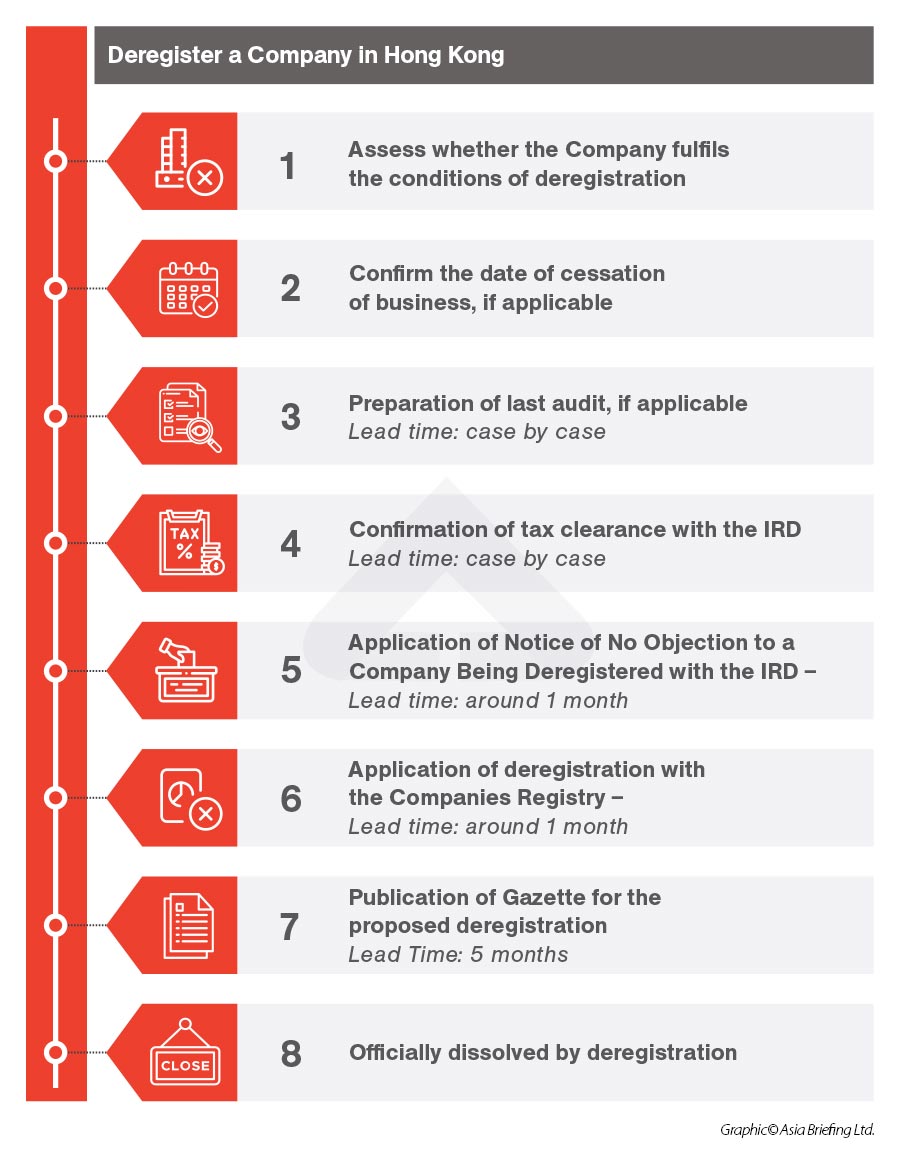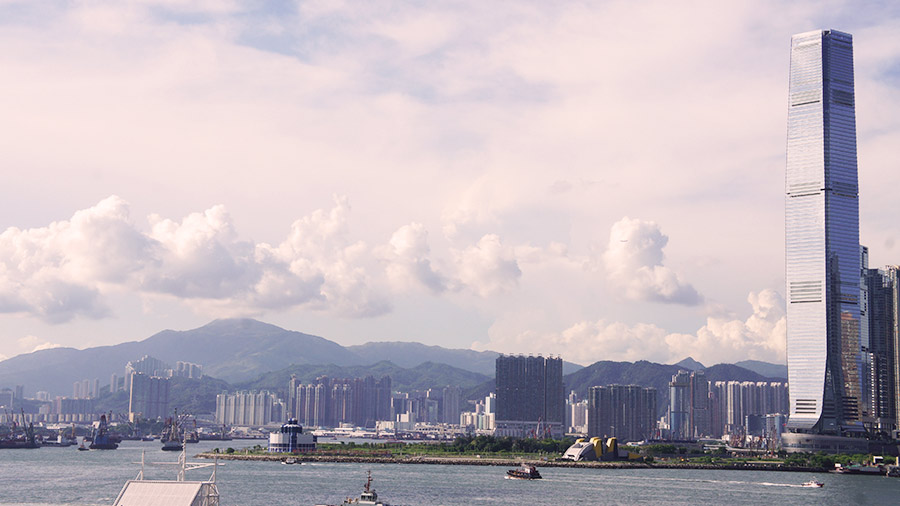Closing a business is a significant decision. It involves a structured process known as winding up. There are various modes of winding up, and it's crucial to understand the steps, legal implications, and consequences involved.
Which types of businesses can undergo winding up procedures?
Only a limited company can undergo winding-up, similar to liquidation. This process involves selling the company's assets to repay its debts legally, ultimately leading to its closure.
A limited company is registered under the Companies Ordinance (Cap. 622 of the Laws of Hong Kong). It's a distinct legal entity capable of legal actions and lawsuits.
There are three points business owners need to take into consideration:
- An "unlimited company" doesn't fit the traditional company definition. Instead, it resembles a sole proprietorship or partnership.
- A sole proprietorship is an individual-owned business, with the sole proprietor bearing full responsibility for its liabilities.
- A partnership involves ownership by two or more partners, each personally and jointly liable for the business's liabilities.
Directors’ duties
When a provisional liquidator is appointed or a winding-up order is issued, the authority of the company's directors ends. However, they remain obligated to fulfill specific responsibilities.
Failure to maintain accurate financial records and prepare a statement of financial affairs can lead to the Official Receiver's Office pursuing legal actions, including prosecutions and potential disqualification of the directors.
Winding-up modes
A company in Hong Kong may wind up by:
- The company can initiate voluntary winding-up in Hong Kong, regardless of its financial health. This process consists of two types:
- Members' (Shareholders') Voluntary Winding-up: The company calls its shareholders to a general meeting and passes a special resolution for winding-up. An application to the Court may follow if needed.
- Creditors' Voluntary Winding-up: Similar to members' voluntary winding-up, a meeting of creditors is also convened, and a liquidator may be nominated during this process.
- The High Court of the Hong Kong Special Administrative Region can order compulsory winding-up under certain circumstances:
- The company is unable to pay a debt of HK$10,000 (US$1,200) or more.
- The Court deems it just and equitable to wind up the company.
- The company passes a special resolution for compulsory winding-up.
Creditors, shareholders, or the company itself can file a winding-up petition. Legal aid may be available for eligible applicants.
Voluntary winding-up
Winding-up by the owners
A company can initiate a voluntary winding-up process by convening a general meeting of its shareholders if it’s proven to be solvent by meeting all of its financial obligations. If a special resolution is passed during this meeting, the company can apply to the Court for a winding-up order.
Alternatively, if a special resolution indicates the company's intent to wind up voluntarily, there is no need for a winding-up order from the Court.
The key steps involved in voluntary winding-up are as follows:
- The shareholders must approve a special resolution for voluntary winding-up.
- Within 14 days of passing the resolution, a notice of the resolution must be published in the Government Gazette.
- The company is required to organize a creditors' meeting, and the notice for this meeting must be published in the Government Gazette and both Chinese and English newspapers.
- The company's directors must provide a comprehensive statement on its financial status, including a list of creditors and their estimated claims, to be presented at the meeting. Resolutions to the winding-up process can be made during this meeting.
- During this meeting, a liquidator may be nominated and appointed. Additionally, an inspection committee may oversee the liquidator's activities.
- The appointed liquidator will manage the company's affairs and conduct regular meetings with the company and its creditors to report on the winding-up progress.
- Once the company's affairs have been fully settled, the liquidator will compile a report on the winding-up process and convene a final meeting for the company and its creditors.
If a special resolution cannot be passed during a general shareholders' meeting, the board of directors can still pass a resolution for the company's dissolution. This resolution should include the following:
- The company is unable to continue its operations due to its liabilities.
- The directors believe it is necessary to wind up the company.
- The impracticality of utilizing other provisions of the Companies (Winding-Up and Miscellaneous Provisions) Ordinance for the winding-up process.
- A meeting of the company and its creditors will occur 28 days after delivering a declaration to the Registrar of Companies.
A declaration detailing this resolution must be signed by a director and submitted to the Registrar of Companies within seven days of the resolution date. Meetings of the company and its creditors should be organized within 28 days of delivering this declaration. Additionally, the appointment of a provisional liquidator is required upon submission of the declaration.
Due to the complexity of the above procedures, the entity is advised to consult a lawyer or other qualified professionals before commencing such actions.
Voluntary winding-up effects
When the voluntary winding-up process begins, the company will halt all operations except those necessary to ensure a smooth winding-up. The legal status and powers of the company will continue until it is dissolved.
Furthermore, any transfer of shares (except a transfer made by the liquidator or made with the concerned party’s approval) and any alteration to the status of the company members made after the commencement of a voluntary winding-up will be void.
Compulsory winding-up
A limited company may wind up by the Court in the circumstances set out in the Companies (Winding-Up and Miscellaneous Provisions) Ordinance. The more common ones are:
- The company is unable to pay a debt of HK$10,000 (US$1,200) or above;
- The Court believes that it is just and equitable that the company should be wound up; or,
- By special resolution, the company has resolved that the Court wind the company up.
A creditor, a shareholder, or the company itself can file a winding-up petition against the company. The petitioner typically instructs a solicitor to prepare and file the winding-up petition. Any person (e.g., employee) qualified to receive legal aid under the Legal Aid Ordinance and Rules may apply to the Legal Aid Department for assistance in filing a winding-up petition.
On the appointment of a provisional liquidator or the making of the winding-up order, the directors' powers of the company will cease. However, they still have certain duties to perform. If the directors fail to perform such duties, such as failure to keep proper books and records and failure to prepare a statement of affairs, the Official Receiver’s Office may take prosecution actions and disqualification actions against the directors.
Compulsory wind-up effects
In the context of court-ordered winding up, the process is set in motion when the petition is filed. Subsequently, once the winding-up has commenced:
- Any action involving the company's assets, such as transferring shares or altering shareholder statuses, is prohibited unless specifically authorized by the Court.
- The company or any creditor or shareholder can seek court intervention to halt or restrain proceedings.
Once a provisional liquidator is appointed or a winding-up order is issued against the company:
- Legal action can only be pursued against the company with court approval.
- The Official Receiver assumes the role of provisional liquidator unless a provisional liquidator has already been designated before issuing the winding-up order.
- If the company's assets are expected to be at most HK$200,000 (US$25,500), the Official Receiver, provisional liquidator, can appoint another individual to take their place.
- The provisional liquidator assumes control over the company, including its assets and financial records, while also inquiring into its operations.
Company deregistration
A private company or a company limited by guarantee, other than those specified in section 749(2) of the Companies Ordinance, may apply for deregistration when it is defunct.
- All shareholders agree to the deregistration;
- The company has not yet commenced operations or business or has ceased operations or business during the three months before the application;
- The company has no outstanding liabilities;
- The company is not involved in any ongoing legal proceedings;
- The company holds no assets consisting of any immovable property situated in Hong Kong, and
- If the company is a holding company, its subsidiaries’ assets do not consist of immovable property in Hong Kong.

Before the company can be deregistered, it first needs to obtain a “Notice of No Objection to a Company being Deregistered” (“Notice of No Objection”) from the Commissioner of Inland Revenue Department (IRD), the Hong Kong tax office. Directors and shareholders, or a person authorized by the company, can apply for such a letter. To apply for this letter, the applicant has to fill in a form retrievable from the tax office website and pay a prescribed fee.
With the Notice of No Objection, the investor should apply for deregistration with the Companies Registry within three months. To apply for deregistration, the investor has to fill in the designated form and pay a fee. The Notice of No Objection needs to be included in the submission. Where the applicant is a company, it must designate a natural person to notify the Companies Registry.
The deregistration will then be published on the website of the Government Logistics Department. If no objections are made in the following three months – such as by alleged creditors – the Registrar may deregister the company by publishing another notice in the Gazette declaring it to be deregistered on the publication date of that other notice. Former directors must keep the books and papers of the company for six years after deregistration.
What is the typical duration for the liquidation process of a company in Hong Kong?
Liquidating your company after deregistration can be a process that spans from 6 to 9 months, and in certain instances, it might extend to a full year.







